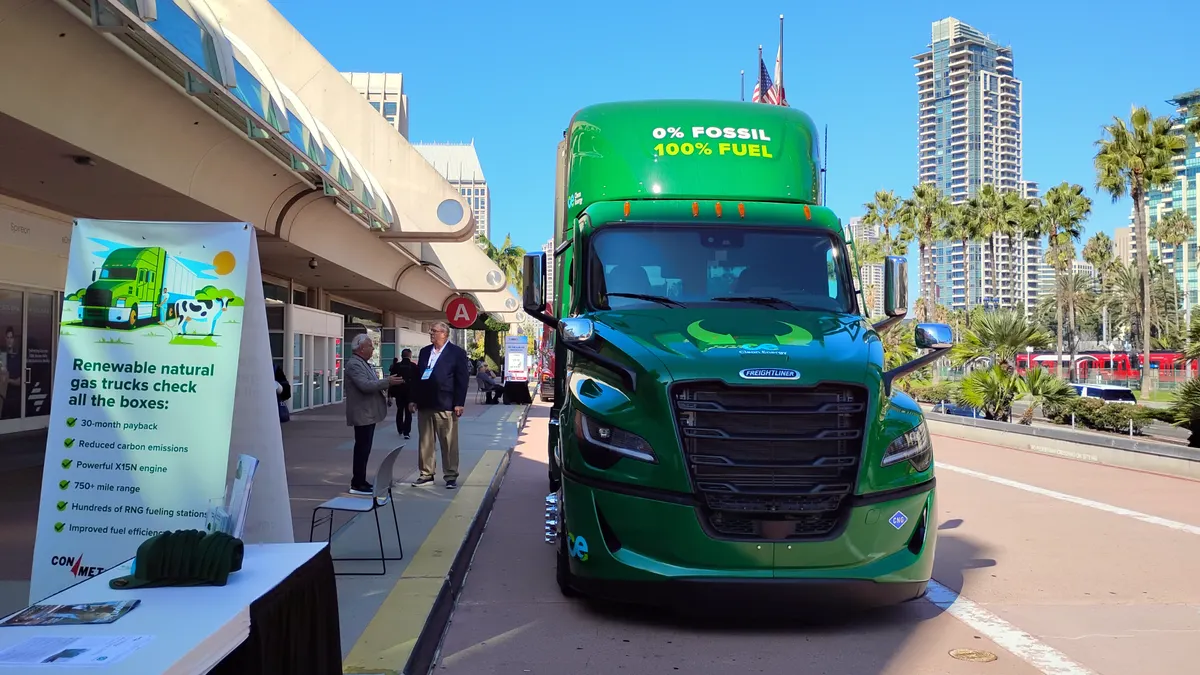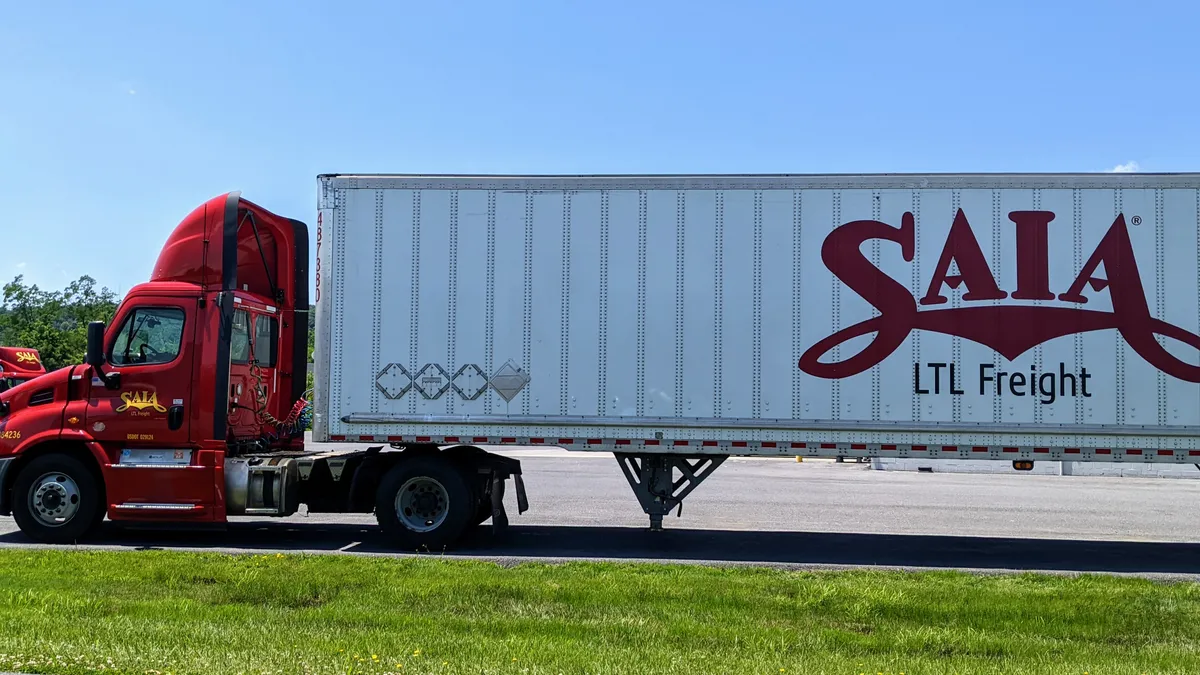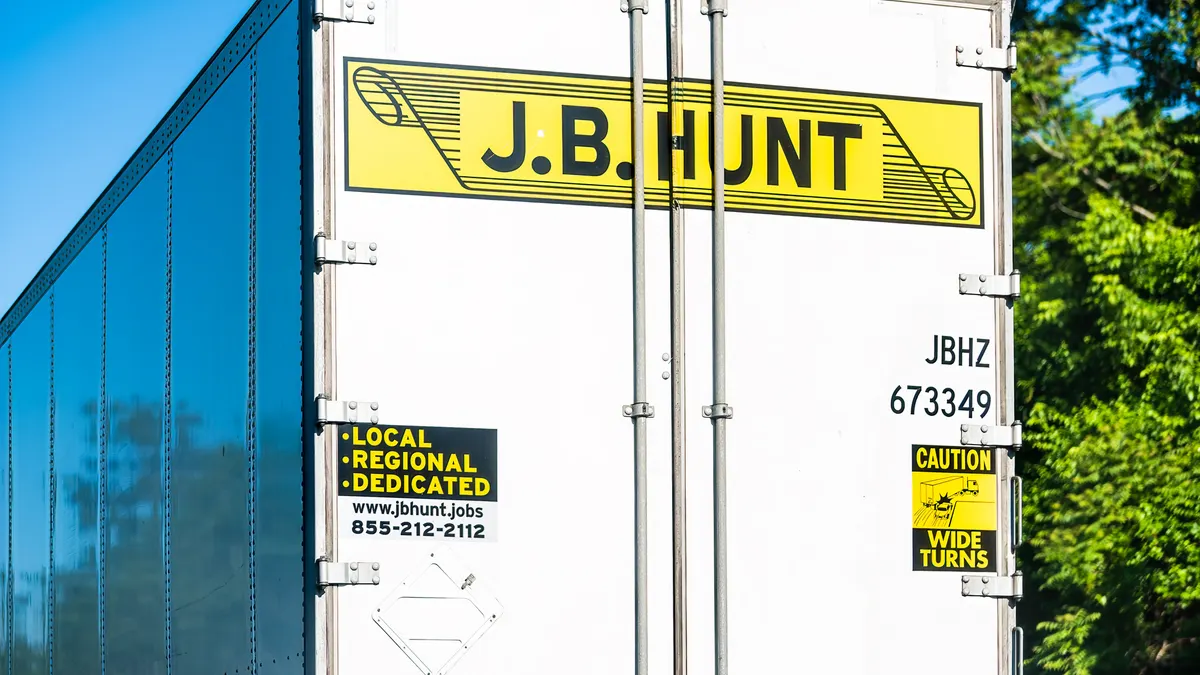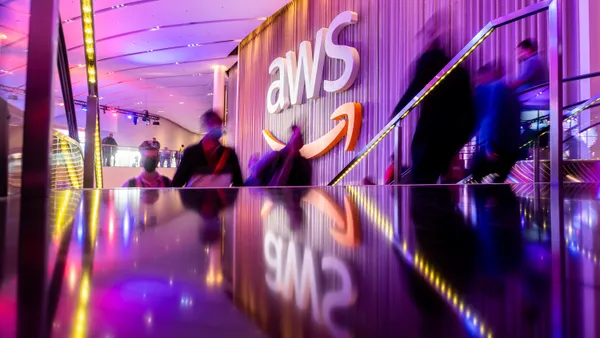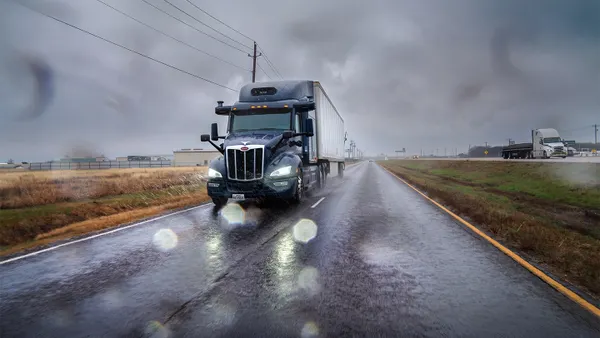Over a decade ago amid a surge in diesel prices, J.B. Hunt Transport Services saw a compelling case for compressed natural gas for huge savings on fuel.
Around that time, its customer Anheuser-Busch sought to convert fleets to CNG in Houston and St. Louis. In coordination with that, J.B. Hunt converted 166 diesel units to the alternative fuel and witnessed a significant reduction in carbon dioxide emissions.
“RNG was not nearly as much of a concept a decade-plus ago as what it is today,” VP of Energy & Sustainability Jerrod Mounce said Oct. 27 at the American Trucking Associations’ 2025 Management Conference & Exhibition. “We didn't have a renewable side of it at the time.”
The cost of a CNG vehicle can be 50% more than a diesel truck, so fleets have to investigate the return on investment, Mounce said for a panel on renewable natural gas.
While that kind of alternative vehicle can have lower fuel economy compared to diesel, it currently can save as much as 50% off diesel prices in best cases in best-case scenarios, Mounce said. “You gotta find ... the sweet spot,” he said.
As part of that progression, Anheuser-Busch fleets were converted once again. The brewing company announced in 2020 it was turning those trucks to renewable natural gas. RNG production sourcing frequently relies on cow manure but can also source supply from landfills and wastewater.
Anheuser-Busch and J.B. Hunt are in lockstep for lower-emissions goals, with the transportation services provider seeking to reduce its carbon emissions 32% by 2034 compared to 2019. The Lowell, Arkansas-based business stated in its 2023 annual report that it’s halfway there.
The transport services giant currently has about 200 renewable natural gas-powered vehicles and also began adding trucks with Cummins X15N engines, Mounce said. The engines, which launched last year, allow diesel as well as renewable diesel blends and certain biodiesel blends.
Stakeholders say a prior-generation 12-liter engine was still an early, limited technology of natural gas tractors, but the X15N has made significant improvements. Upgrades include better fuel economy, steel pistons and a new ignition system to extend the life of spark plugs, among other changes, Cummins previously noted.
“We are seeing a little better mpg with the 15 liter truck than with the 12 liter truck by probably 3 to 5% so that's great,” Mounce said. “That's what we're wanting to see. It's still obviously lower fuel economy than diesel, so you gotta factor that in.”
With RNG, advocates like the RNG Coalition aim to expand a growing network to 1,000 operational facilities by the end of 2030.
“If we're not where you need us to be today, let's talk about that,” said panelist Marc Rowe, general manager of fuel sales at Love’s Alternative Energy. He noted that Love’s has 650 pieces of real estate and is strategic with its alternative energy additions. “These fueling stations cost millions of dollars to deploy. So we want to put them in the right places.”
RNG fueling network
While diesel is going to be around for a long time, the only viable option currently for heavy-duty longhaul transport is natural gas, said panelist Eric Bippus, chief commercial officer for Hexagon Agility. The company manufactures fuel tanks and fuel systems for trucks.
“When you look at the economics around why natural gas dominates the alternative from diesel, the first one is around energy density. You have to be able to pack enough energy on the vehicle” or a fleet has to “drastically alter its operations,” he said.
Additionally, a technology needs to be able have mass adoption and seamless operation. And the technology is already here, as opposed to competing technology that has heavily relied on government subsidies, which are effectively science projects, Bippus said.
“There has to be a positive ROI for the fleet,” he said, “or the fleet will only do this in funded projects.”
Correction: This story has been updated to reflect that J.B. Hunt saw a reduction in carbon dioxide emissions for a CNG conversion.


